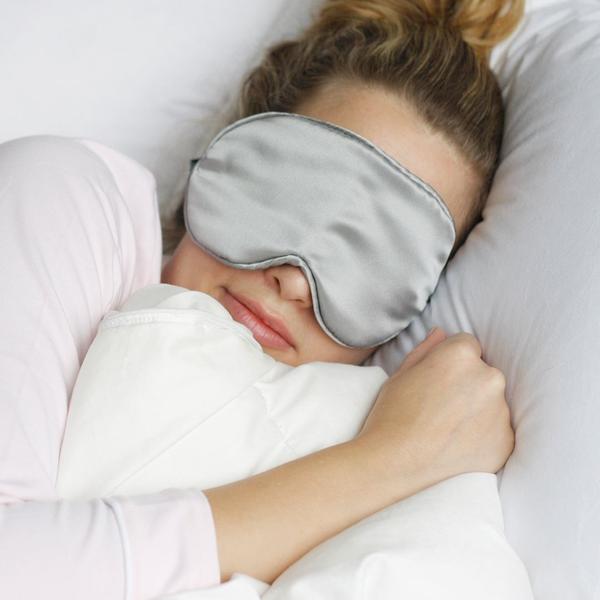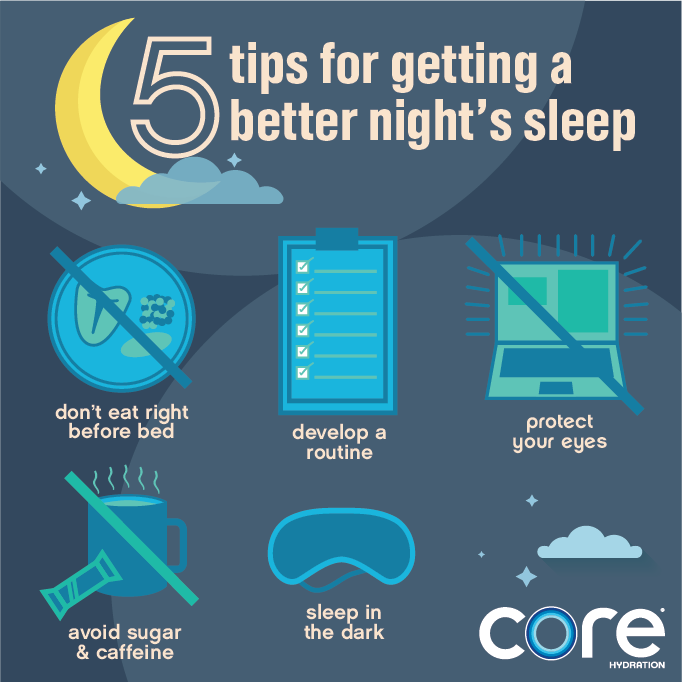Tips for a Tip-Top Immune System: Improving quality of sleep

When you are sleeping at night it is important that you get good quality and quantity of sleep, as this is when your body is healing. If your sleep is disrupted, of poor quality, or you are not getting the right amount, it can start to impact your health and have a detrimental effects on our immune function.
When you are asleep your body produces proteins called cytokines, which help to protect your body from inflammation, infection and the effects of stress.
On average we should be getting 6-8 hours of sleep per night. That means over a quarter of our day is spent in bed!
Sleep should be a time where our bodies are healing and replenishing after a stressful day, yet so many of us are actually putting physical stress on our body throughout the night. If your sleep posture is not supporting your spine correctly, you might be causing spinal misalignment and irritation to your nervous system. The flow on effect of this may have an impact on your long term health.
- Digestion
At night, your digestive system and other organs are functioning. If you are lying on your stomach during sleep, you are creating more pressure on these digestive organs, making it harder for the organs to function optimally. Over 70% of your immune system is found in your gut. This is why it is important to enhance your digestive function to improve immunity. Sleeping on your back or side takes the pressure off this area and allows your digestive system to function at its best during the night.
- Sleep Posture
You should be sleeping either on your side or on your back. When you are lying on your stomach you are twisting your neck and spinal cord throughout the night, which creates increased pressure on the nerves and muscles in your neck and upper back. This can ultimately lead to neck and shoulder tension. As well as negatively impacting on the neck and upper back, your lower back may also become aggravated; this is because the curve in the lumbar spine is not being supported.
When it comes to choosing a pillow you should use one that supports the natural curves of the spine, thus keeping you aligned throughout the night.
If you sleep on your side make sure your pillow keeps your head in a neutral position. This means that your chin is at the level of passing through the middle of your chest. If the pillow is too high your head will be sitting up too much and if it is too low you will be compressing the neck and shoulder. When these poor postures are sustained throughout the night it can often result in neck pain, headaches, tingling into the arms, breathing issues and more. This is why it is always recommended to use a contour pillow to support your neck along with allowing space for the width of your shoulder. This also ensures that you are not compressing your shoulder or arm throughout the night, forcing it forward, which is a very common cause of shoulder pain.
If you are a back sleeper the pillow only needs to support the small curve of your neck. There is minimal support really by the pillow, the thing you want to be careful of is having a pillow that is too high, this will cause a forward head posture, which is associated with mid-back/neck pain, headaches as well as increasing pressure and stress on the nervous system.
It is important to make sure that the lower back and pelvis stay aligned throughout the night too. When people are sleeping on their side they often swing their top leg over, twisting their hips and lower back throughout the night. To avoid this a little tip is to put a pillow on the bed in front of you or in-between your knees so your top leg rests on it throughout the night.
If you sleep on your back, use a small pillow behind your knees to keep them slightly bent. This will help to make sure the arch in your lower spine isn’t too excessive as well as take the pressure off your lower back.
So now you know how to reduce your physical stress while you are asleep, but what if you struggle with even getting to sleep… There are a few really simple things that you can implement into your night time routine to help you get a better night’s sleep.
- Trouble getting to sleep?
The first tip is to have a routine! Our body clock or sleep-wake cycle is dependent on our circadian rhythm one major thing that helps us to maintain a healthy rhythm is to go to bed at the same time each night and wake up at the same time each morning.
- How does Blue light and Electromagnetic fields affect sleep?
Another way in which we can enhance our sleep patterns is to reduce the amount of blue light we are exposed to in the evenings before bed. Blue light stimulates our hypothalamus causing suppression of melatonin release from the pineal gland. Melatonin is our sleepy hormone so this is a bad thing. Ways to decrease exposure to blue light include minimizing screen time, using blue blocker glasses, glasses with red lenses or using different filters over your screen such as f.lux for laptops and night shift for smartphones.
Interestingly blue light also stimulates the hippocampus and amygdala, areas of the brain responsible for memory and emotions.
Conversely having a dark room with no blue light will promote the release of our sleepy melatonin hormone. To keep your room nice and dark use block out blinds to keep the light from outside… outside. Even the little power light on a television, clock, heater, air conditioner etc. can be stimulating your brain, so cover these up with tape or something alike. If you feel comfortable doing so, use an eye mask.
It’s not only the light from your electronic equipment that could be causing you issues with your sleep. Recent studies have suggested that electromagnetic fields (EMF) released from these devices could be negatively affecting our sleep and could lead to insomnia, mood disturbance, decreased immunity and more. At night or whenever you aren’t using your device turn it off at the switch this includes the television, alarm clock, laptops, mobile phones and the biggest one of all WIFI!
But what if I use my phone as my alarm? My clients often ask me.
Well switch your phone over to flight mode and make sure it is far away from you. The added bonus is you will have to get out of bed to switch off your alarm off so you won’t be tempted to hit the snooze button until you are running late.
- Nutrition
Speaking of decreasing brain stimulation to get you off to sleep, be mindful of what you are consuming after 3pm. It is widely accepted that what we choose to eat or drink directly impacts our health and vitality. Eating the right foods will have a positive impact on your immune system, improve cognitive function and assist with your bodies ability repair and recover. The worst things that you could consume before going to bed are foods that contain caffeine this includes coffee, energy drinks and dark chocolate, this is because they wind-up your brain when you’re trying to wind-down.
I do have some other handy hints up my sleeve when it comes to sleep, it may be a little bit much for just one blog. If you would be interested in learning more we would love to help. Here at Global Chiropractic we are passionate about caring for the individuals and families of our community in order for them to achieve their best health.
If you have any specific questions regarding your individual situation or you would love further information please contact us here at Global Chiropractic on 54443388 or email [email protected]
Global Chiropractic
SPECIAL OFFER: Global Chiropractic is currently offering new clients $180 worth of Chiropractic care for just $59. To get your $59 Chiropractic voucher, simply follow the link below:



